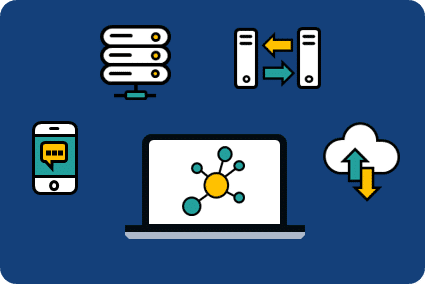BLOGS
Can Cloud Computing Transform The Leasing Industry?


Even though the leasing industry has grown considerably over the years, especially during the past decade, the technology used to manage the associated administration processes has remained static in comparison.
This is despite how simultaneously technological advances appear to have integrated seamlessly into what seems like every other area of business.
Software and connectivity are improving all the time, making our everyday lives more automated and easier to manage. Especially in previously laborious, time-consuming fields, developers like those behind business apps, such as Quick Books, have used new technologies to make data-driven tasks and processes easier.
Yet the overwhelming majority of those that utilise leasing as part of their business model rely on labour intensive, slow, unreliable tools and techniques. Spreadsheets and paper filing systems are still the go-to method of lease accounting and lease portfolio management for businesses all over the world.
But the software now exists to make this whole process smoother, more reliable and easier than it has ever been. Cloud-based SaaS systems are transforming the leasing industry by simplifying the entire management and accounting process.
What Is Cloud Computing And Cloud-Based Software?
The “cloud” is essentially a person’s computer desktop but it is instead housed on the internet. This means that it can be accessed by the user - or anyone with the login details - from anywhere with an internet connection. But this description underplays the impressive security features included which mean that not just anyone can login to this virtual “desktop”.
The benefits that using a cloud bring reach beyond being able to login in from any internet connection.
The more files and programmes (documents, databases and accounting tools, for example) that are housed on a cloud system means that less is stored on the physical computer desktops and shared servers in the office. This means that performance speeds are boosted, less expensive hardware (the physical machinery sat in your office) is required, whilst server rooms and systems aren’t needed at all (and they’re expensive to manage and expensive to power and cool).
A cloud platform is easier and quicker to scale up in size than traditional hardware-based storage devices and a lot more secure. Power failures and the like don’t create the need to keep constant backups of data because to the user the internet itself doesn’t get power cuts.
And there are other benefits for finance and procurement teams who want to use cloud-based software and systems to perform their day to day lease management and lease accounting.
How Cloud Computing Will Change Leasing & Lease Accounting
If your business still utilises spreadsheets and paper filing systems for lease portfolio management, then you are missing out on the added operational benefits of using cloud software for lease management and accounting.
The problem with spreadsheets is that they are always prone to accidental misuse and operator error, and the more experienced users of the spreadsheet are the more likely they are to see their own Excel habits and shortcuts creep in. Also, it’s inevitable that, at some point, there will be multiple versions of what is supposed to be the one spreadsheet in existence. This means could-be-needed or even important-for-compliance data can end up slipping through cracks and being lost.
These issues are heightened if you have various points of responsibility for your lease portfolio or have teams based in different offices or geographical areas. The lack of centralisation makes gathering and accessing data a time consuming and difficult task to complete.
This will then be painfully heightened again once the changes laid out in IFRS 16 come into effect in the coming months. Luckily, shrewd companies are already well advanced with achieving compliance with the new lease accounting standards and cloud-based software for lease accounting is helping them to achieve this.
With fundamental changes afoot, such as what is categorised as a lease and what can be reported where within financial documents, lots of businesses are taking advantage of intelligent cloud software which can help them to achieve compliance.
And not only achieve compliance but do it easily and with minimal effort. Software is now ready which can assess your lease data, compile the most commonly needed reports and flag potential issues for you. This takes the management work out of lease accounting and has other benefits too.
The people behind such lease accounting software can even assess a company’s lease portfolio and highlight potential opportunities for improvement too.
If IFRS 16 is the biggest change to ever hit the leasing industry, cloud computing is bringing the biggest benefit to lease accounting since the emergence of desktop computers. Accessible by all of your team members and with no worries of duplicated files, accidental loss or spending time searching for documentation, it’s no wonder that more and more businesses are digitising their lease management by using cloud software for lease management and lease accounting.
More On Lease Management & Accouting Software.
Read more about digitising lease management in this introductory guide that we have put together to help you find out more. Press the button below and open your free copy.








